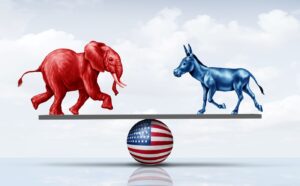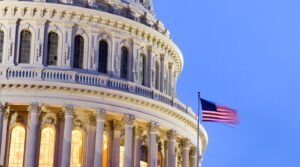Public policies are to governments as habits are to individuals: patterns of conduct that are adopted deliberately but often retained merely out of inertia. While it is in some sense irrational to continue a behavior simply because it has become customary, it would be inconvenient, even impossible, for either individuals or governments to reinvent their behaviors from day to day on the basis of a fresh evaluation of their interests. There is thus an implicit reasonableness even in the unreasoning retention of habits or policies that cause no evident harm. This is the understanding of traditionalists like Edmund Burke, who hold that the long persistence of custom is, all other things being equal, a prima facie defense of its retention.
But of course all other things are not always equal. There is a limit to the usefulness and reasonableness of habitual conduct. Given a large enough change in circumstances, the most helpful habits or policies may become harmful. Thus even Burke admits that a nation without some means of change is incapable of preserving itself. Such change, however, can be very difficult. A policy that has become habitual may no longer even be recognizable as an object of choice. It may become so fixed in people’s minds that it will simply not occur to them that it could be otherwise, even when new circumstances have arisen that undermine its usefulness.
America is currently confronting an economic problem almost unknown to the present generation: stubbornly high unemployment along with decreased participation in the labor force. The unemployment rate has held at or near ten percent of the workforce for more than a year. The rate of underemployment—which includes not only the jobless but also those with some work but who want to be working more—is even higher. Moreover, few economists predict significant relief any time soon. On the contrary, the consensus seems to be that even if the economy enters a persistent recovery, the decline in unemployment will be painfully slow. As one news report has noted, at the present rate of job creation, it will take another ten years for the economy to recover the jobs lost as a result of the recent recession.
Both major political parties insist that encouraging job creation ought to be the government’s first concern. Democrats emphasize increased government spending as a solution to the problem of unemployment, while Republicans favor tax cuts. Whatever else one may say about the merits of these approaches, they only address the problem indirectly. Their aim is to place money in the hands of citizens and hope that the increased capacity for consumption and investment will stimulate the creation of jobs. Both approaches are problematic to the extent that they threaten to add to the federal deficit, either by increasing government outlays or by diminishing revenues, thus running the risk of impeding economic vitality in the long run. It is ironic, then, that the debate between those who advocate government spending and those who favor tax cutting ignores an existing government policy that is both a direct impediment to job creation and that could be modified without fear of increasing the federal deficit: the minimum wage.
That the minimum wage contributes to unemployment is a matter of elementary economics and common sense. As everyone admits, a higher price for a given commodity tends to depress demand for that commodity. Raise the price of cars, and people will buy fewer cars, choosing to get along with the ones they already own. This is true of labor as it is for any other article of commerce. By artificially increasing the price of labor, the minimum wage deters some employers from offering employment, because they perceive that the work they have in mind is not sufficiently productive to justify the payment that the government requires. They choose to get along with the employees they have.
Start your day with Public Discourse
Sign up and get our daily essays sent straight to your inbox.The minimum wage’s contribution to unemployment is not popularly appreciated, perhaps because its effect is displayed less in the destruction of existing jobs than in the prevention of potential jobs. When the government mandates an increase in the minimum wage, most employers will grin and bear it, keeping their existing workforce and seeking other ways to cover the cost. There is no denying, however, that this same increase will deter the same employers from offering new employment by making it more costly. Nevertheless, its effect on unemployment is no less real for being largely invisible.
Our current crisis of persistently high unemployment calls for some reconsideration of the minimum wage, a reconsideration that has, so far, been lacking, no doubt in part because of the habitual status of the policy. The economic principles discussed above are sufficiently well understood that a proposal to increase the minimum wage in the context of the current unemployment numbers would probably be denounced on all sides as the height of economic folly. Nevertheless, as a nation we seem not to have noticed that the same principles suggest that a decrease in the minimum wage could be expected to ease unemployment. Again, a gradually and irreversibly increasing minimum wage is so much a part of the policy landscape, and hence the very fabric of national life, that any alternative is almost unthinkable to many Americans. Our current situation seems to require that we try to think about what has hitherto been unthinkable.
This is not to say that we should entertain the possibility of repealing the minimum wage. Doing so would amount to a radical change in policy, the consequences of which could not easily be foreseen. While economic theory tells us unequivocally that the minimum wage contributes to unemployment, drastic attempts to bring policy into immediate conformity with pure theory seldom end happily. Here again the wisdom of Burke is apt: new circumstances call for a cautious and incremental modification of existing policies, not their wholesale alteration. All change will generate unintended consequences, but incremental change is likely to generate only ones that are few, small, and therefore manageable.
Taking these political and policy considerations into account, it ought to be possible to entertain the possibility of some limited change in the minimum wage reasonably calculated to mitigate its employment-suppressing effects. We might consider a policy that works no change for those who are currently employed and that diminishes, but does not eliminate, the minimum wage for newly created jobs. Perhaps it would be possible, for example, to reduce the minimum wage from $7.25 to $5.15 per hour, the rate as recently as five years ago. Such a modification would diminish an existing deterrent to new job creation, while not harming the interests, or risking the political wrath, of those who are currently employed. Moreover, it would, unlike spending increases or tax cuts, cost the government nothing and add nothing to the deficit. On the contrary, to the extent that it spurs job creation it will add to tax revenues.
It might be objected that such a change would tend to create jobs only for low-skilled, low-earning workers. On the other hand, such workers are often those who are hardest hit by recessions. Moreover, while the direct effect of such a policy would be to ease the deterrent to the creation of such jobs, the overall savings in labor costs would also encourage employers in the creation of higher-wage jobs as well. For example, by making it economically feasible for an employer to hire a team of minimum wage workers, a diminished minimum wage for new jobs might also enable the hiring of a supervisor for that team, an employee who would make more than the minimum. Besides, by establishing an artificial floor for compensation, the minimum wage tends to inflate even the wages for higher paying jobs. Conversely, then, a drop in the minimum wage can also be expected to allow a decrease in the wage that employers can offer for positions commanding more compensation than the minimum. It might at first seem paradoxical to suggest that a decrease in all wages could be beneficial, but, again, such a decrease can be desirable under conditions of continuing unemployment, since it would decrease the cost of creating jobs across the whole range of wage-levels. Indeed, some current commentary is beginning openly to acknowledge this fact, suggesting that the climate of opinion may be ripening for reconsideration of the minimum wage.
It might be further objected that such a policy as the one sketched above would invite employers to fire current low wage employees simply to hire new ones at the lower minimum wage. This possibility, however, is less an objection to reconsidering the minimum wage than an invitation to a cautious and deliberate approach to modifying it. In fact, such a predatory employment practice is precisely the kind of unintended but foreseeable consequence that can be anticipated and remedied by a sufficiently sophisticated analysis accompanying an incremental, as opposed to wholesale, change in policy.
In any case, my point is not primarily to defend this or any other specific policy recommendation. Which incremental modification of the minimum wage is within the bounds of policymaking prudence and political feasibility is a question best answered by economists and politicians. My point, rather, is that now—a lasting period of unacceptably high unemployment, with no relief in sight—is the time for such a question to be explored.









